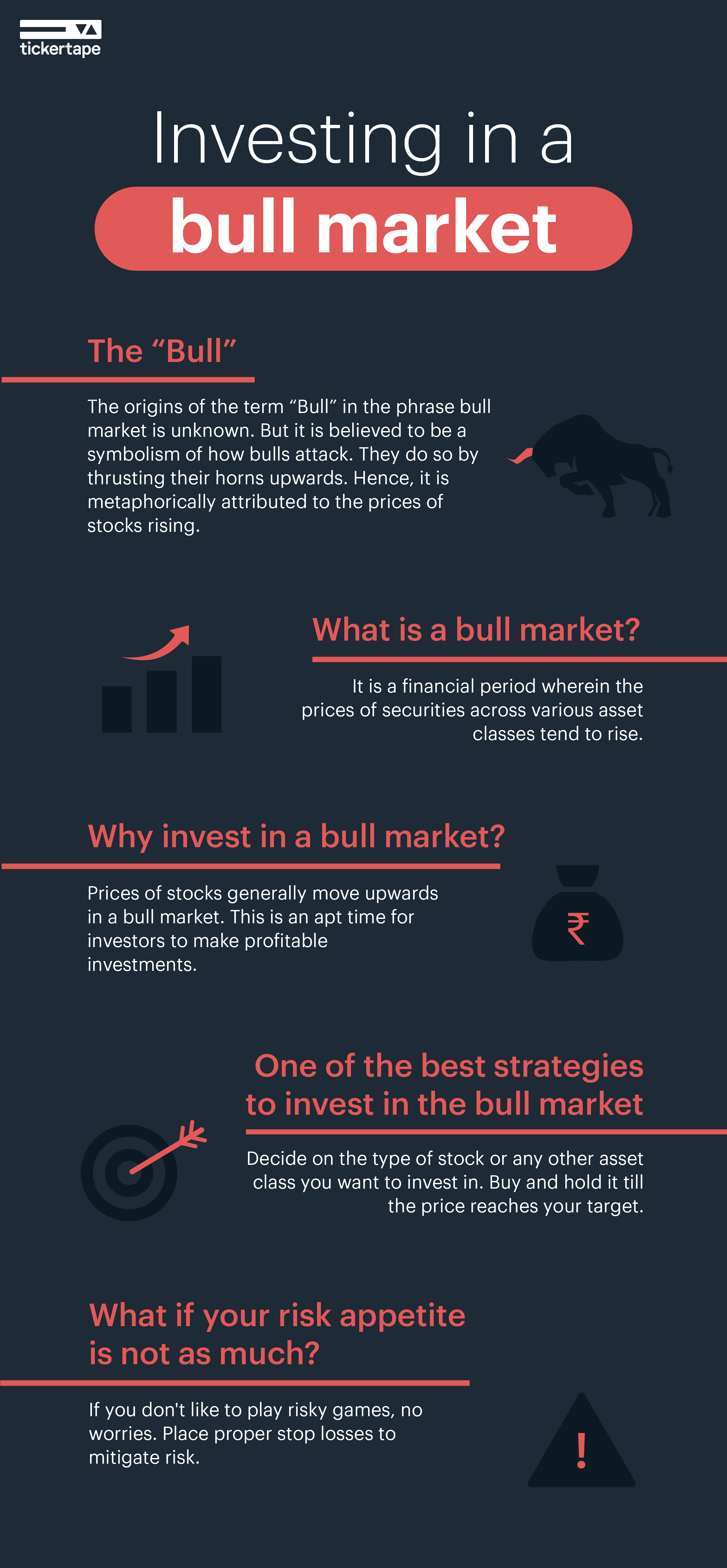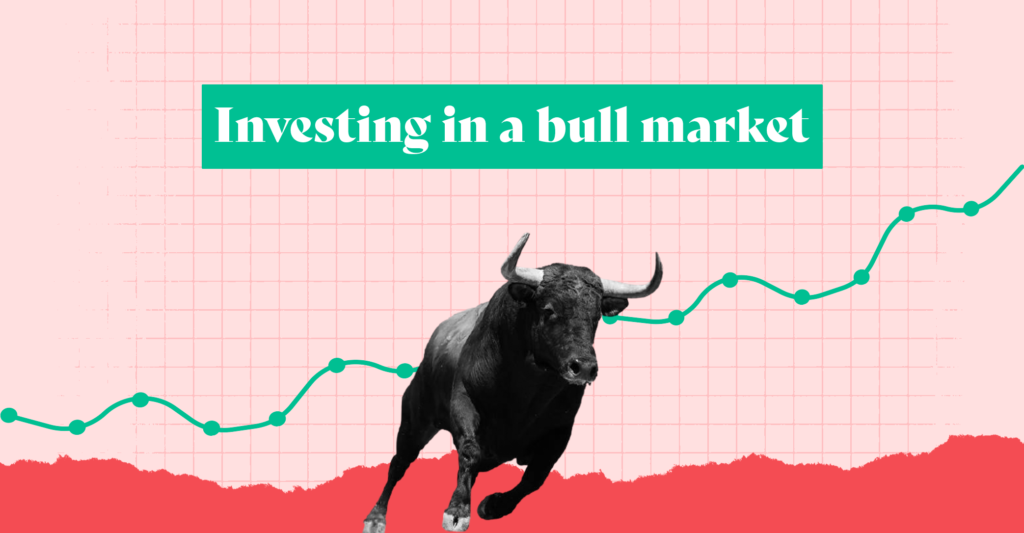Last Updated on May 24, 2022 by Aradhana Gotur
A bull market is a part of the stock market lifecycle in which the stock prices are generally on the rise. Read more about why to consider investing in a bull market.
But, is it lucrative to invest in a bull market? If yes, when do you enter the stock market, and how exactly can you book profits? These questions make investing in the stock market look like a labyrinth to new investors. This article answers these questions.
Table of Contents
What is a bull market?
A bull market is a financial market environment in which stock prices are projected to rise. The word “bull market” is most commonly used to characterize a foreseeable uptrend in stocks, but it may be used for any asset class that is traded, including bonds, real estate, currencies, and commodities.
Economic boom characterizes bull markets. When security prices go up faster than the average overall rate, it means that the market is becoming bullish.
Investing in a bull market
Whether you are a novice trader or an experienced investor, entering the bull market can prove to be lucrative. You can try investing in all kinds of asset classes, be it stocks or commodities, as the risk factor lessens due to rising prices.
Such a market is mostly driven by news. Good news would cause the prices to move in the uptrend pattern. On the other hand, in case of any negative news, you may observe either a sideways price movement (due to demand and supply forces becoming almost equal which leads to the price getting stagnant between resistance and support levels) or a brief period of selling pressure.
This is a rest period for the market, after which it is expected to resume its upward trend. When the demand for stocks increases and no bad news has been in sight for a while, a bull trend is expected to begin.
Bull market and the timing
Your mindset around investing matters the most while deciding whether or not to invest during a bullish trend. While investing in a bull market, think about the future. Where do you see the stock you invest in going? What is the future of that particular company or sector? What are the fundamentals of the sector?

Arguments in support of bull market
A couple of years ago investors used to think that stock prices were sky high, making them believe that a bull market is short-lived. People who refrained from investing are now thinking about ‘I wish’ scenarios of going back in time and riding a bullish wave. Now, it has become common knowledge that stock prices rise occasionally forming a bullish trend and more profits can be booked if you decide to ride early on this uptrend.
Novice or experienced investors can decide on the type of company or asset class to invest in according to their strategy. Buying and holding the stock till the prices reach your target price can be a safe and profitable strategy.
Arguments against bull market
In a bull market, some stock prices rise, some don’t. Some sectors rise, some don’t. Investing is an art and you should know that there are bound to be higher highs and sometimes lower lows. Any negative news can result in stock prices crashing. Analysis of stock price movement and trends about when the prices would break free from the resistance levels may be accurate to a certain degree but you should not solely rely on them.
You must invest after doing careful fundamental and technical analysis of the company’s stock that you want to buy. You believe in your analysis while keeping the risk factors in mind. Risk appetite differs for every individual depending on their trading style. If your risk appetite is not much, then play safe and place proper stop losses.
In a bull market, you can place proper stop loss according to your risk appetite. That way you can mitigate risk while trading Click To TweetFAQs
- Where does the term “bull” in the bull market come from?
The exact roots of this term are unknown, but one possibility is that bulls attack by raising their horns. This was metaphorically attributed to the stock market price moving upwards in a bullish trend. - How long does a bull market last?
Bull markets can last for as little as a month, and in some cases can even last years. - What drives a bull trend?
Good news related to economic recovery, companies undergoing expansion, and other positive developments in the economy drive a bullish trend. - What do the rising stock prices indicate?
Rising stock prices indicate overall industry/economic growth. In other words, it suggests that companies are moving towards a profitable future.
- Hedge Funds in India: Types, Features, and Benefits - Apr 15, 2025
- SBI Equity Mutual Funds – List of Top Performing Schemes for 2025 - Mar 27, 2025
- List of Overnight Mutual Funds in India (2025) - Mar 17, 2025




